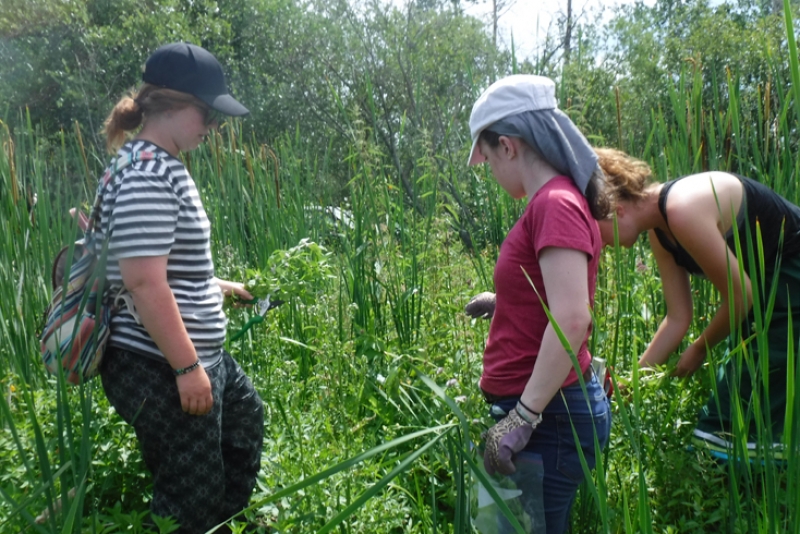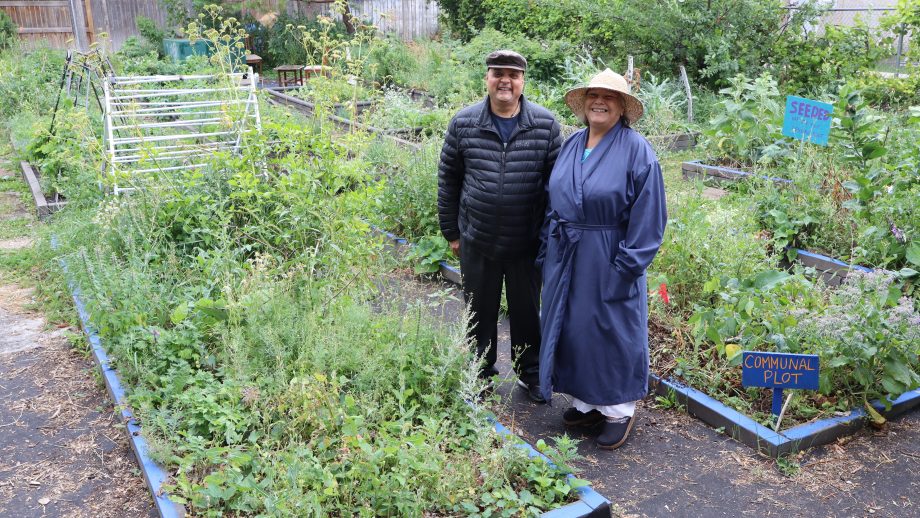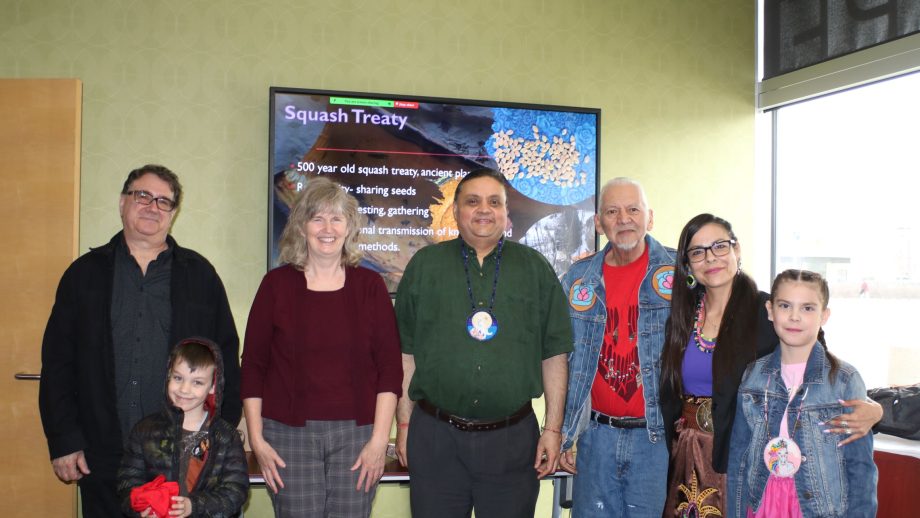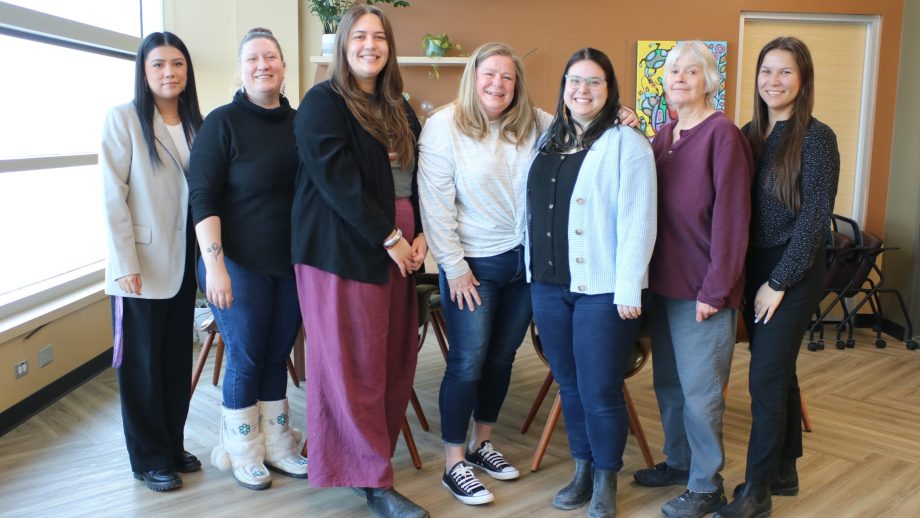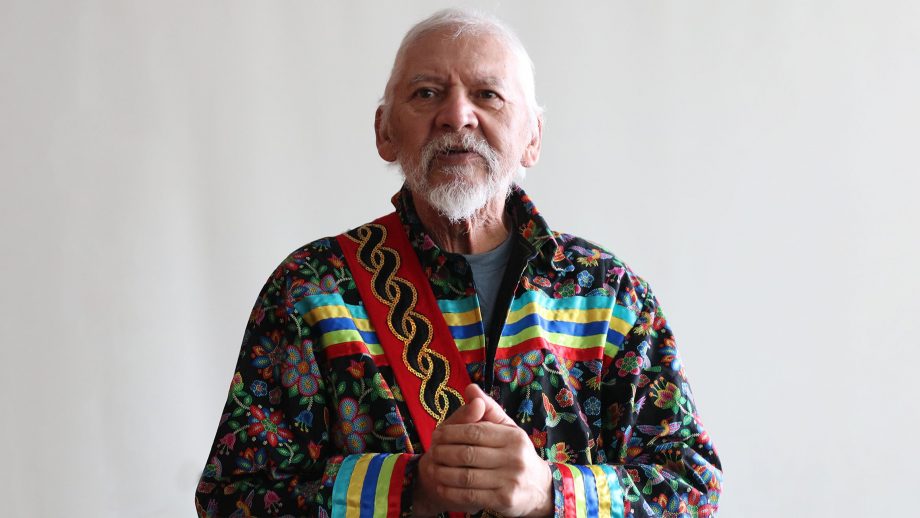A group of University of Winnipeg students learned ethnobotany from classroom instruction, Indigenous elders, and herbalists this summer, during a unique field school held at Medicine Eagle Lodge in the Keeseekoowenin First Nation near Riding Mountain National Park.
I loved learning from the Elders, having the forest as my classroom, and sleeping in a teepee at night with a fire going.
Nykola Dudeck
The course, which has been running for the past six years, was designed by associate professor Dr. Shailesh Shukla, Master of Arts in Indigenous Governance. His teaching and research interests range widely from Indigenous knowledge systems, Indigenous and traditional foods, food sovereignty, ethno-ecology, participatory governance, community-based conservation, inter-generational transmission, and learning within Indigenous knowledge systems.
“This course creatively and synergistically combines arts and sciences by weaving Indigenous worldviews and wisdom from Indigenous elders with western understanding of field ethnobotany and herbalism,” said Shukla. “Many students tell me that after taking this course, their perspective and way of looking at plants is transformed.”
Indigenous Studies, business, and environmental studies student, Megan Lindell, says the course surpassed her expectations. It showed her different ways of knowing, and opened her eyes to a relationship with plants, especially cedar, that she hadn’t previously understood.
“I got much more out of this class, and through the time on the land, than I could have ever hoped or dreamed for,” she said. “We live in a beautiful place and there is so much more to it than most know. If we take step back and understand what these plants are here to do, I truly believe we can live better lives that are full of more love and gratitude.”
Shukla leads students through seven days of on-campus instruction before heading outdoors for four days of land-based learning centred around 48 local plants used in medicine, ceremony, and traditional foods by Indigenous communities in Canada and elsewhere.
It was the land-based learning component that drew education student Tonya Gray to the class. Gray hopes to return to Medicine Eagle Lodge to continue learning, and to assist the Elders with future plant medicine camps.
“This class gave me the knowledge and experience necessary to access land-based education practices, and the confidence to bring this style of education to my own field-study class in the near future,” she said.
For her final project, Gray created plant cards detailing what she had learned about red dogwood, cranberry, black current, and diamond willow.
“They look professional and I will use them in my teaching in the future,” she said. “These four plants were selected for me, and they resonated deeply with my practice and learning throughout the course.”
Shukla has seen first-hand how important it is for students to hear Indigenous voices and perspectives alongside dominant academic knowledge. As students go on medicine walks, they listen to the stories of elders and learn traditional uses and meaning of plants, as well as the Indigenous protocols for sustainable use and conservation. In the process, they develop a newfound respect for Indigenous plant knowledge.
“I loved learning from the Elders, having the forest as my classroom, and sleeping in a teepee at night with a fire going,” said history and Indigenous studies student Nykola Dudeck. “I have a lot more respect for plants now. It is very important to give back to the earth before you take from it.”
As one student presented on her learning during the final class, she talked about how the course changed the way she looked at the goldenrod “weeds” growing through cracks in the sidewalk near her urban home.
“Goldenrod thrives in diversity,” she said, explaining how it has been used historically as a folk remedy to reduce joint pain and muscle spasms, among other benefits.
Indigenous Ethnobotany Field School (IS-3201) is one of 59 courses that qualify for UWinnipeg’s Indigenous Course Requirement, which ensures that all incoming undergraduate students learn about Indigenous peoples and be exposed to Indigenous perspectives and worldviews during their studies.
UWinnipeg students may choose from a number of courses in which the greater part of the content is local Indigenous material — derived from, or based on, an analysis of the cultures, languages, history, ways of knowing, or contemporary reality of the Indigenous peoples of North America. Visit Indigenous UWinnipeg for a full list of courses that fulfill UWinnipeg’s Indigenous Course Requirement.

